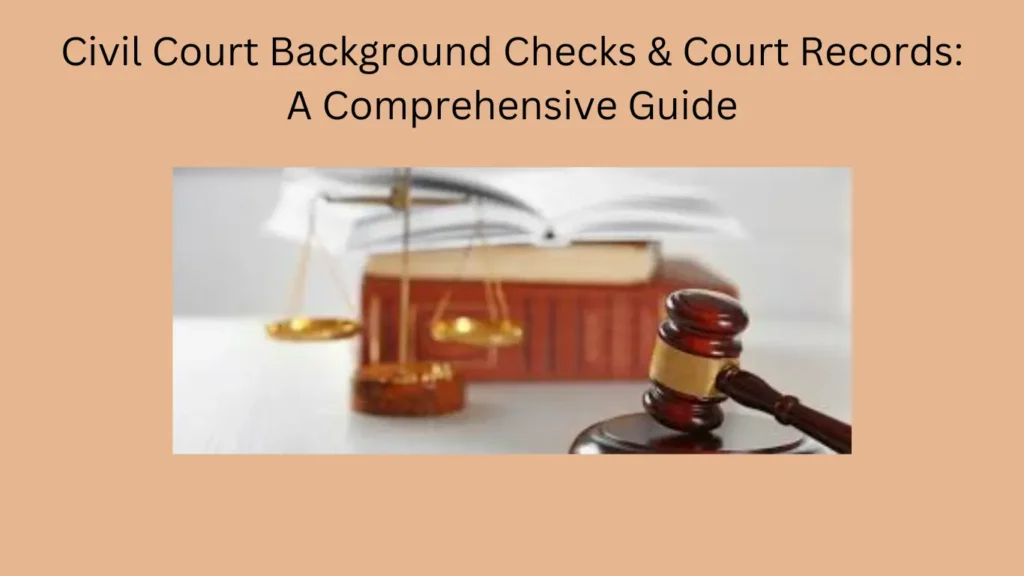Introduction
Civil court background checks and court records are essential for individuals and businesses to verify legal histories and make informed decisions. Understanding how to access and interpret civil court records is crucial, especially when considering the creation of helpful, reliable, people-first content.
1. Understanding Civil Court Background Checks
Civil court background checks involve searching court records for civil cases, which include disputes between individuals or organizations regarding non-criminal matters such as contracts, property, and family issues.
2. Importance of Civil Court Background Checks
Civil court background checks help individuals and businesses assess potential risks and liabilities associated with a person’s legal history, especially in matters like hiring, renting, or forming partnerships.
3. How to Access Civil Court Records
- Identify the jurisdiction where the civil case was filed.
- Visit the official website of the relevant court or use online databases like PACER for federal cases or state-specific databases for local cases.
- Enter the person’s name and other relevant information to search for civil court records.
- Review the search results carefully, ensuring they match the person’s identity and the timeframe of interest.
4. Factors to Consider
- Accuracy: Verify that the information obtained is accurate and up-to-date.
- Legality: Ensure that the use of civil court records complies with relevant privacy and data protection laws.
- Reliability of Sources: Use reputable sources and verify the authenticity of the information obtained.
- Timeliness: Check the date of the civil court records to ensure they reflect recent information.
5. Privacy and Data Protection
Respect individuals’ privacy rights when accessing civil court records online. Avoid sharing sensitive information obtained through civil court background checks and adhere to relevant privacy laws and regulations.
Conclusion
Civil court background checks and court records are valuable tools for verifying legal histories and making informed decisions. By following the steps outlined above and considering the factors mentioned, individuals and businesses can ensure that the information obtained is accurate, reliable, and respectful of individuals’ privacy rights.
For further Inquires Contact Us
FAQs
What are civil court background checks?
- Civil court background checks involve searching court records for civil cases, which include disputes between individuals or organizations regarding non-criminal matters.
Why are civil court background checks important?
- Civil court background checks help assess potential risks and liabilities associated with a person’s legal history, especially in matters like hiring or forming partnerships.
How can I access civil court records?
- You can access civil court records by visiting the official website of the relevant court or using online databases like PACER for federal cases or state-specific databases for local cases.
Are civil court background checks legal?
- Yes, conducting civil court background checks is legal, as long as it complies with relevant privacy and data protection laws.
How can I ensure the accuracy of civil court records?
- Verify the information obtained against official sources and ensure it matches the person’s identity and the timeframe of interest. Use reputable sources and consider consulting legal professionals if needed.
